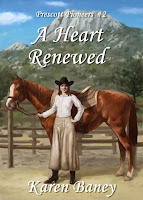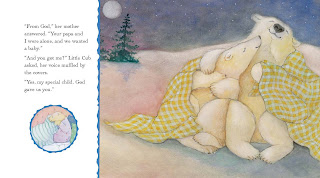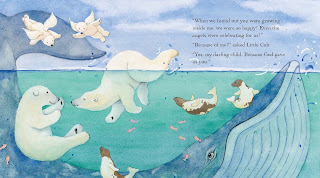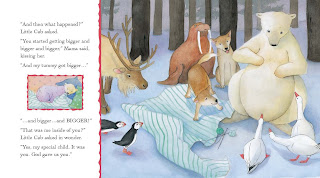A Heart Renewed
December 20th, 2011 It is time for a FIRST Wild Card Tour book review! If you wish to join the FIRST blog alliance, just click the button. We are a group of reviewers who tour Christian books. A Wild Card post includes a brief bio of the author and a full chapter from each book toured. The reason it is called a FIRST Wild Card Tour is that you never know if the book will be fiction, non~fiction, for young, or for old…or for somewhere in between! Enjoy your free peek into the book!
It is time for a FIRST Wild Card Tour book review! If you wish to join the FIRST blog alliance, just click the button. We are a group of reviewers who tour Christian books. A Wild Card post includes a brief bio of the author and a full chapter from each book toured. The reason it is called a FIRST Wild Card Tour is that you never know if the book will be fiction, non~fiction, for young, or for old…or for somewhere in between! Enjoy your free peek into the book!
You never know when I might play a wild card on you!
***Special thanks to Karen Baney for sending me a review copy.***
 Karen Baney, in addition to writing Christian historical fiction and contemporary novels, works as a Software Engineer. Her faith plays an important role both in her life and in her writing. Karen and her husband make their home in Gilbert, Arizona, with their two dogs. She also holds a Masters of Business Administration from Arizona State University.
Karen Baney, in addition to writing Christian historical fiction and contemporary novels, works as a Software Engineer. Her faith plays an important role both in her life and in her writing. Karen and her husband make their home in Gilbert, Arizona, with their two dogs. She also holds a Masters of Business Administration from Arizona State University.Visit the author’s website.
Headstrong. Unconventional. Until life turns upside down…
Julia Colter struggles to accept life under her controlling brother’s greed. The suitors he selects would benefit him, but are far from the ideal husband for her. When her rebellion against her brother puts her life at risk, she turns to her friend for help.
Adam Larson longs to train horses and plans to head west to the Arizona Territory to see his dreams fulfilled. When his sister’s best friend shows up in the middle of the night, he agrees to help her flee. The decision changes his life, in more ways than he expected.
Can Julia forget the pain from her past and open her heart to love?
Product Details:
List Price: $14.99
- Paperback: 338 pages
- Publisher:Karen Baney (April 17, 2011)
- Language: English
- ISBN-10: 0983548625
- ISBN-13: 978-0983548621
- ISLAND BREEZES
- It was good to catch up on all the latest going with the Coulters. Jt’s just a shame to see Julia so broken.
- This is still a story about the Coulters, but we have a few new families joining us as the story proceeds from Texas to Arizona.
- In this book you’ll read about grief and sadness, but you’ll also read about renewal and happiness.
- This is a good stand alone read, but you really should read the first book, A Dream Unfolding, as it’s a very good background story. I’m looking forward to the next book.
AND NOW…THE FIRST CHAPTER:
Star C Ranch, Texas
July 4, 1864
“You cannot be serious, Reuben!” Julia Colter shouted, not caring that she might wake her niece and nephew from their afternoon nap. Pacing back and forth across the length of the kitchen, she stopped in front of her older brother, her temper flaring almost as hot as the stove. “He is balding and fat and twice my age!”
“You will marry who I say!” Reuben thundered. “I expect you to treat Mr. Hiram Norton with the upmost respect this evening. He has shown great interest in you and the least you can do is be civil with the man.”
“But, I could never love him!”
As Reuben shoved her violently up against the wall, Julia’s breath left her lungs in a rush. Digging his fingers into her arms, she could feel the bruises starting to form. His brown eyes darkened with unrestrained anger as he glared down at her. She swallowed in fear, stunned by his abrupt action.
“Stop, you’re hurting me,” she said, trying to break free from his vice like grip.
He raised his hand as if he meant to strike her—something he had never done before. The action startled her to silence. Instead of hitting her across the face, as she thought he might, Reuben returned his hands to her upper arms squeezing even harder.
Leaning so close the heat of his breath warmed her cheeks, he said, “You have no idea what hurt is, Julia. You are an insolent little whelp. You will paste a smile on that tart little face of yours. And you will do your best to win his affections or,” his voice menacing, “you will suffer my wrath, the likes of which you have yet to see.”
Releasing his hold, he pushed her so that she tumbled to the floor in a heap. As he turned to walk away, he added in a sinister tone, “It would be best if you get used to the idea of Hiram Norton and give up fanciful notions of love, dear sister. You will not have that luxury. The sooner you come to accept that, the better it will go for you.”
She sat in stunned silence as Reuben stalked to his office down the hall. Tears streaming down her face, Julia bolted to her feet, running out the front door of the ranch house to the nearby stables, still frightened by her brother’s brutal behavior.
The smell of hay and horse assaulted her delicate senses as she selected a gentle mare. Throwing her saddle on the horse’s back, she led her from the barn. Once under the open blue skies, she shoved one foot into the stirrup, swinging her other leg over the mare, riding astride. Nudging the mare into a full gallop, Julia fled to the one place she would always feel free—the back of a horse in the wide open pastures.
Reuben may be her guardian now, but she had only to endure a few more years of this before she would be of age and in control of her life. If only she could stop him from marrying her off before then.
At seventeen, she considered herself too young to get married, though many women her age and younger married. She wasn’t ready. She didn’t pine for the responsibilities marriage entailed. She liked her freedom. But, when she was ready to marry, she would marry for love and not because Reuben wished it.
Certainly, she would never marry Hiram Norton. The thirty-seven year old rancher was the exact opposite of what Julia wanted for a husband. His short stature and fading hairline made him look even older. He had a reputation for loving excess. When it came to food, his waistline showed the results of that love. There were other unsavory aspects to his reputation as well which included rumors that he frequented the saloon and brothel.
No, the man for Julia would be young and handsome. His character would be impeccable, his honor undeniable. Land, money, and wealth held no importance to her. She only cared that her dream man would be able to provide for her and their family.
As the wind tangled her long, sandy brown curls, she continued to press the horse for more speed—needing it to soothe her fear and anger. In the distance she saw the herd of longhorns kicking up dust. The sight sparked a memory of Will, the kinder, more honorable of the Colter brothers, sending her mind racing in another direction. So many times he’d taken Julia out to the pasture, teaching her how to rope, ride, and work with the cattle. Some thought such behavior unacceptable for a lady. She was glad to learn these skills. Should her handsome young dream man end up being a rancher, he might appreciate her ability to work the ranch by his side.
Why hasn’t Will written? The thought of Will brought fresh tears as memories of his hasty departure flooded her mind. Not only had she buried her father, but she also lost the brother she was close to—all within a few short weeks. Almost a year ago, following her father’s death, Reuben forced Will to leave the ranch when he had been deeded the house and ranch. While Will and Reuben both received half of the herd and the financial holdings, Will was left with no home or land. Unable to find anything close, Will moved to the Arizona Territory, leaving Julia behind. Alone.
The only time she heard from him was in November 1863. Will wrote that he, his men, and his cattle arrived safely and set up their new home near the Granite Creek settlement in the Arizona Territory—wherever that was. No other letters came.
Despite the thirteen year age difference between Will and Julia, they adored each other. She followed him everywhere, never far from his side even when he worked with the herd. When she needed protecting, it was Will who came to her defense.
Oh, how she could use his protection now. If he were here, he would stop Reuben from forcing her to marry that awful Hiram Norton.
But, he wasn’t here. He was in a distant territory, far from Texas, far from her aid. Her father left her in Reuben’s care—not Will’s—even though Will would have been the better choice as far as Julia was concerned.
Their father never saw the evil that clouded Reuben’s heart and he knew nothing of his manipulative ways. In her father’s eyes, Reuben was as good of a son as Will. If her father knew of Reuben’s late nights in town or of his forceful tactics for bankrupting other ranchers and taking over their lands, he turned a blind eye. She found it hard to fathom that father could have missed such thinly concealed behavior.
As the mare started to struggle for breath, sides heaving with great effort, Julia eased up the pace. She was so torn. She had thought more than once to runaway to Arizona, but was afraid Reuben would find her and drag her back. Now he wanted her to flirt with Hiram Norton and get him to marry her. She had no desire to do what Reuben was asking. Mr. Norton may be wealthy, but he was twenty years older than her. There was something indecent in that alone. Nothing about him or his character appealed to her.
Realizing she was nearing the outer pasture, Julia turned the mare around to head back to the ranch house. She did not want to risk angering Reuben further by being unprepared for their dinner guests. Lord, please don’t make me have to marry that repulsive man. Will always said you could work things together for good. I am not seeing much good right now. Please give me the strength to make it through this evening meal.
As she pulled the mare to a stop in front of the stables, she slid off the horse. One of the young cowboys, Bates, took the reins from her hand.
“Miss Colter, you best hurry,” he said, nodding toward the lane leading to the ranch house.
A cloud of dust at the far end of the lane indicated their guests were already arriving. Julia shot a quick word of thanks to the friendly cowboy before picking up her skirts and running to the house. As she threw the door open, panting for breath, she caught Reuben’s seething look.
Rushing down the hall she slammed her bedroom door shut. She splashed some water on her face, wiping away the dust from her ride.
“Where have you been?” Mary’s panicked voice preceded her entrance into Julia’s room. Reuben’s normally calm, quiet wife seemed rather anxious as she picked up the corset she laid out.
“Riding.”
“Whatever for?” came the squeaky, agitated response.
Julia tore off her day dress, tossing it over a chair. As Mary came to assist her with the corset, Julia took her last deep breath of the evening. She hated the confining contraption. Once the stays were tightened, she lifted her arms as Mary helped settle the lovely yellow silk down over her shoulders.
“You should have been in here an hour ago,” Mary lamented. “Now there is no possible way we can fashion your hair into ringlets. The other women will think you don’t care about your appearance.”
They would be correct, Julia thought. “You fret, too much,” she replied, brushing out her tangled curls. She would be content with twisting her unruly hair into a chignon, despite how much it fought against the pins.
“Go on. I’ll finish,” she instructed Mary, hoping to have a quiet moment to compose herself before entering the fray.
Mary hesitated for a brief moment before softly exiting the room. Taking as deep a breath as she could, Julia let it out in a heavy sigh. Undoubtedly, Hiram Norton was already here, waiting for her in the other room. Pasting a smile on her face, she squared her shoulders and left the solitude of her room.
“Hiram,” Reuben said as Julia approached, “I do not believe you have met my sister, Julia.”
It took every ounce of courage to hold her smile steady and extend her hand towards Mr. Norton’s rotund frame. Taking her hand, he placed a sloppy kiss on top, before asking, “Reuben, where have you been hiding this lovely filly?”
Filly? The distasteful comment sickened her.
“Mr. Norton, a pleasure to meet you,” Julia said with more decorum than she thought she possessed. As soon as his hold lifted, she discretely wiped the back of her hand on her dress.
“Miss Colter, you are absolutely stunning,” he replied, allowing his lustful gaze to rove over her neckline, down her curvy figure, making overtly inappropriate stops along the way.
She fought to tamp down her mounting abhorrence. As the guests were seated around the table, she eagerly helped Mary set out the food.
Still irritated by Mr. Norton’s uncouth comment, she decided to fight back as she took her seat. “Mr. Norton, my brother tells me you have been very successful with your ranch, despite the Union’s blockade. Tell me, how do you do it?”
Reuben’s eyes narrowed slightly, letting her know he caught her barely hidden sarcasm.
“My lovely Miss Colter, such matters are too complicated for your simple mind to understand.”
Another mark against Mr. Norton—condescension towards women, she thought, keeping the sweet smile firmly in place. Lobbing a spoonful of potatoes on her plate she waited for him to continue.
“However, I shall endeavor to enlighten you,” he said with an air of superiority, snatching the potatoes from her hand. “While the Union may have blockaded our route to drive cattle to the New Orleans market, they have made no such effort to stop us from driving to points north or west. It seems that as long as we aren’t supplying the Confederate Army, they care little where we sell our cattle. We have simply changed our route north to the railways in Missouri. While I don’t care for the Union and their imposing ways, a profit is a profit. And I have made significant gains by being one of the first Texans to sell to eastern markets by way of Missouri.”
“Mr. Norton.” As her irritation rose, Julia retorted, “If a large profit is to your liking, why not drive the cattle west towards the California market where prices are more than triple that of the eastern markets?”
Reuben shifted in his chair uncomfortably. His darkening eyes warned her to hold her tongue. Julia knew she should have heeded the warning, but she preferred being forthright. Let Mr. Norton find that out now.
Mr. Norton laughed off her question, causing her to dislike the man even more. “You are a spirited little woman, I will give you that. But your comment shows your youth and your naivety.”
Taking not one, but two large pork chops from the platter she handed him, he said, “While the prices west are much higher, so is the cost to drive the cattle such a great distance. The length of time it takes to drive the cattle to California is almost three times as long as the northern route. It is also much more dangerous. There are many more Indians and cattle thieves westward. It would simply not be profitable to drive the herd west.”
His snooty tone grated on her nerves. When she opened her mouth to speak, Reuben interrupted. “Perhaps, dear sister, you should leave the business matters to men. I’m sure you would be much more interested in knowing how Mrs. Withers’ new baby is faring.”
Mrs. Withers quickly picked up the conversation, monopolizing both Julia and Mary’s time. While Julia was surprised Reuben even knew the woman had a child, she was thankful for the opportunity to ignore Mr. Norton.
As the conversation continued, she felt something brush against her knee then move away. She kept her focus on Mrs. Withers’ overlong description of her young son and on eating the meal, until she felt the unmistakable presence of a man’s hand move above her knee. She stole a glance and confirmed Mr. Norton’s hand rested most inappropriately on her thigh. Angling her legs further away from him as discreetly as possible, Julia’s stomach churned. When Mr. Norton pressed closer, she thought she might lose her dinner. The man appeared to have no limits.
Standing abruptly, she said, “If you’ll excuse me. I’m not feeling quite myself.” Without waiting for a reply she hurried to her room.
![]()
Reuben scowled after his sister. Her behavior had been completely unacceptable, despite his attempt earlier in the day to reason with her. This silly idea of marrying for love must have worked its way into her thinking from the stories their father told of their mother. No one married for love.
He certainly hadn’t. While Mary was pleasant looking enough and easy to control, he did not love his wife. He had married her to increase his social standing among the area ranchers—something his father never seemed to care about. Her father had been one of the wealthier men in the area and he was easy to win over. In fact, Reuben thought, most everyone he met was easy to manipulate—except Will and Julia.
It didn’t matter. Will was gone and out of the picture. He was no longer a nuisance, even though it was Will’s fault that he was in such a financial mess. The timing of Will leaving with half the herd and half the financial holdings was disastrous, leaving him unable to pay debts to some very powerful men—a situation he was desperately trying to resolve.
The last bite of his pork chop churned in his stomach as fear gained a foothold. He needed Hiram’s money from the marriage arrangement to Julia. It was his only hope of turning things around.
As his guests finished the meal, Reuben stood. “Gentlemen, shall we retire to the front porch for some refreshments and cigars?”
The men eagerly nodded, obviously wanting to be away from the women as quickly as he did. As Hiram stood, Reuben pulled him aside. Speaking loud enough for the others to hear, he said, “We’ll join you in a moment. Hiram and I have a few business matters to discuss.”
Leading Hiram back towards his office, Reuben hoped Hiram would still be amiable to the agreement they discussed several days ago at the saloon, despite Julia’s less than enthusiastic attitude this evening.
Before he offered a seat, Hiram took one, starting the conversation on his terms. “Julia is quite lovely, Reuben. You’ve been holding out on me. When you asked for such a large sum, I assumed she must be dreadful to look at.”
“So you are pleased?”
“To a point,” Hiram admitted. “While she’ll keep me entertained well, she needs to learn to control her tongue, especially in front of guests. I’m surprised you haven’t dealt with this already.”
Reuben frowned. If only Hiram knew what he was up against. With any luck, he wouldn’t find out until after his wedding day. “Well, father has only been gone a short time. He doted on her, so it will take some time to get her to properly respect a man.”
“Ah, there’s the catch. I’ll have to train her myself then.” Hiram laughed. “It will be a fun challenge—breaking her. Too bad you didn’t have more time to do the job yourself. You could get a much higher price for her, as beautiful as she is.”
The price he was asking was enough. Normally prone to greediness, when it came to selling his sister’s hand in marriage, he felt it prudent not to get too greedy. He was running out of time and needed to pay his debts soon. Once that pressure slackened, he could focus his energy on rebuilding his wealth.
A brief hint of remorse came over Reuben. Had he stooped so low that he was selling his sister for money? But, it was not as if he were selling her to a brothel. No, he was just selling her to a wealthy rancher. She would live in luxury. What could be bad about that?
He knew living with Hiram Norton would not be pleasant. The man had a reputation for being ruthless to his business associates, to his women, and even to his mother. He had no limits. He made Reuben look like a saint. Julia would undoubtedly be miserable married to him until she learned her place.
Chiding himself, he refocused his attention back to what Hiram was saying. He needed this man’s money, not a sudden case of conscience.
“After we have our cigars,” Hiram was saying, “then, I will take Julia for a walk. See if I still fancy her. When I return, we will announce our engagement. It will be short. No longer than a month.”
Reuben held back a gasp. He hadn’t expected Norton to want a short engagement. “You know what the townsfolk will say with such a hurried wedding. They will think my sister has been compromised.”
Pulling a large stack of bills from his coat pocket, Hiram slammed it down on the desk. “I don’t think you will care too much what is said about your sister’s reputation. Who knows, what they say may end up being true anyway.”
The dark look on Hiram’s face sent shivers down Reuben’s spine. Ruthless seemed rather inadequate of a word to describe the man before him. He had to make sure Julia did not ruin this deal, for he did not want the added pressure of Norton’s anger.
![]()
Mary knocked on Julia’s door not more than ten minutes after she left the meal. Her voice was timid when she spoke, “The men have retired to the front porch for cigars. Reuben requested that you return to the parlor with the women.”
Sighing, Julia did as instructed. She listened to the gossip of the rancher’s wives and wished her friend Caroline Larson was in attendance, so she might actually be able to enjoy the evening. The Larsons owned a ranch to the east of the Star C and they had been long-time family friends. Up until last year, before father passed away, the Larsons were always invited for every social gathering—sometimes they were the only guests. Since then, Reuben saw little use for Mr. Larson’s moral ways and only included them on rare occasions to pacify her or his wife.
Not paying attention to the boring conversation, Julia missed seeing the men return from the outdoors. Mr. Norton’s hand on her forearm jolted her from her thoughts. “Miss Colter, I was hoping you might take a walk with me.”
“And who will be acting as chaperone?” she replied curtly, not wanting to be alone in his presence.
Mr. Norton laughed, a sound she was beginning to detest. “Silly girl, I am much too old for a chaperone. I assure you, your reputation will be safe with me. I simply want to stroll for a few moments with a beautiful woman on my arm.”
Julia thought a stroll might be too much for the man. He was sweating profusely and seemed to have difficulty walking the distance to the door, as his breath came in short, heavy bursts. She looked to Mary for support. She smiled and nodded her approval, oblivious to Mr. Norton’s reprehensible behavior. As Reuben stood next to Mary, his eyes narrowed with a silent warning. Heeding the unspoken message, she stood and accepted Mr. Norton’s arm.
Outside, the air barely cooled in the waning sunlight, causing Julia to grow warm in a matter of seconds. She wished she thought to grab her fan when a sour odor wafted from the man at her side. Averting her face, she tried to catch an untainted breath of air. Unsuccessful, she decided parting her lips to breathe through her mouth might be preferable.
Nearing the stables, Mr. Norton stopped abruptly, turning towards Julia. The quick motion—seemingly impossible coming from the man who seemed to struggle walking much of a distance—frightened her. Sucking in air quickly through her mouth, a slight tickle lingered in the back of her throat, almost bringing on a cough.
When he spoke, his voice took on a sinister edge. Even in the dimming light she could see the contempt in his eyes. “Miss Colter, while I admire your feisty spirit,” he said as he grabbed her wrists, “It would serve you not to embarrass me again, especially by questioning my business practices in a room full of my peers. I can make your life most unbearable if you cross me.” Without warning he pulled her close and crushed his mouth down on hers as his hands took great liberty in exploring her body.
The shock of his action took a moment to register. Once it did, Julia brought her booted heel down hard on the top center of his foot, just as Will showed her. He dropped his hold instantly, crying out in pain. As he limped toward her, she ran for the front of the house to put some distance between them. Tripping over something, she stumbled, giving Mr. Norton time to catch up. He grabbed her bruised upper arms with surprising strength.
“Do not ever do that again,” he said in a hostile tone. “Do you not know that Reuben has promised you to me? Make no mistake, MissColter, I am a powerful man. If you want to live a decent, peaceful life under my roof, you best lose some of your haughtiness… Or, I will take whatever measures necessary to force it out of you.”
Julia blinked, trying to absorb all that he said. Was he saying that Reuben already agreed to her marrying this loathsome man? An ominous chill swept over her as he continued his intense stare. Her heart beat rapidly within her chest as her panic rose. She could not—would not—marry this dreadful man.
Dropping his hold on her, Mr. Norton extended his arm and placed her hand in the crook. “Smile,” he commanded as he limped to open the front door.
While her smile came insincerely, his seemed quite pleased. He crossed the room slowly, still favoring his injured foot, before stopping in front of Reuben and Mary. “Reuben, it gives me great pleasure to announce that Julia has eagerly agreed to accept my offer of marriage,” he said smugly. “She was so delighted that she agreed to a short engagement. We will be married in a month.” His fingernails dug into her arm daring her to speak otherwise.
The smirk on Reuben’s face told her this had been their plan all along. Such a public announcement, even though it was completely false, would be difficult to break. Lord, help me. I cannot marry that man.



























